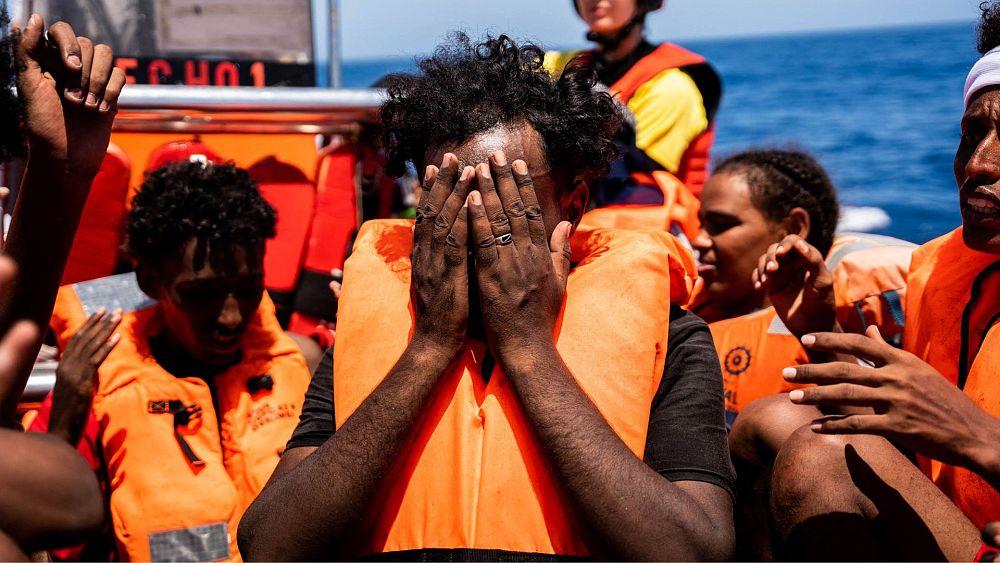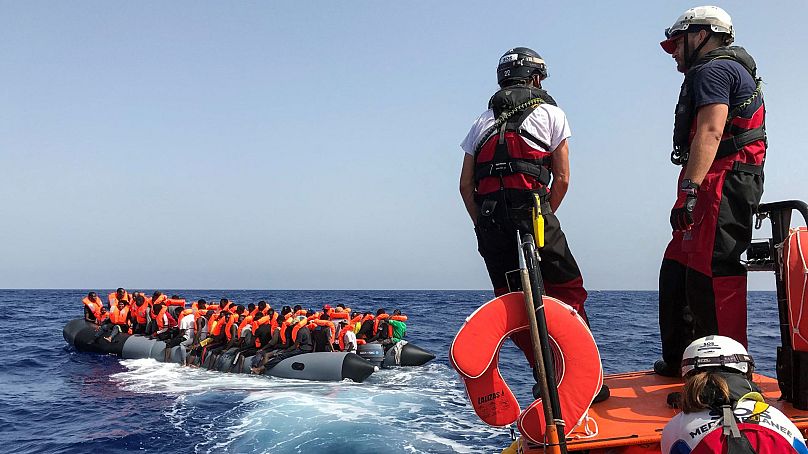
Three times more migrants have died or disappeared this summer while trying to cross the Mediterranean, warned UNICEF on Friday.
The findings come amidst fraught diplomatic negotiations on migration issues in Europe, alongside highly controversial policies to tackle the issue in some countries.
Between June and August, at least 990 people were shipwrecked in the central Mediterranean, the world’s most dangerous sea route linking North Africa to Europe.
That’s three times more than the 334 migrants who lost their lives over the same period in 2022, according to a count by the UN children’s agency.
Although there are no figures for the total number of children (UNICEF counted around ten a week in July), 11,600 “unaccompanied minors” attempted to reach Italy between January and mid-September 2023 aboard makeshift boats – 60% more than over the same period last year (7,200), the agency told AFP.
‘A graveyard for children’
“The Mediterranean has become a graveyard for children and their future. The tragic toll of children who have died seeking asylum and safety in Europe is the result of political choices and a faulty migration system,” said UNICEF’s Regina De Dominicis.
According to the UN High Commissioner for Refugees, more than 2,500 migrants have died or gone missing between 1 January and 24 September 2023 – an increase of 50% over one year.
Record-breaking arrivals of migrants on the small Italian island of Lampedusa have put European cooperation in the management of migratory flows back on the agenda.
With 8,500 people landing on the island in three days, more than its entire population, the arrivals sparked a political storm in Italy, which has stepped up emergency measures.
Determining ‘unaccompanied minors’ age
Giorgia Meloni’s far-right government approved a draft decree on Wednesday evening that opens up the possibility of placing unaccompanied minors over the age of 16 in adult facilities.
It could also require them to undergo medical examinations to determine their age.
Although the bill still needs parliamentary approval, it is likely to pass with the right-wingers having an absolute majority.
The bill’s text authorises “anthropometric measurements” and tests such as X-rays to determine the age of young migrants.
“It will no longer be possible to lie about your real age” to avoid possible deportation, warned Giorgia Meloni on her Facebook page.
Others have criticised the plans with UNICEF spokesperson in Italy Andrea Iacomini calling the checks on minors “worrying”.

On the European scene, the situation in the Mediterranean has reignited discussions in Brussels on the migration pact, which has been mired in dissension since the European Commission presented it in 2020.
The pact wants to strengthen the EU’s external borders and a solidarity mechanism between the 27 Member States for dealing with asylum-seekers.
The leaders of the EU’s nine Mediterranean countries are due to meet again this Friday in Malta to agree their positions on this issue.
Europe-wide response ‘absolutely necessary’
“The adoption of a Europe-wide response to support children and families is “absolutely necessary to prevent more children from suffering”, said Regina De Dominicis of UNICEF.
According to the UN agency, it is “war, conflict, violence and poverty” that drive children “to flee their home countries alone”.
Facing “exploitation and abuse at every stage” of exile – and the risk of shipwrecks at sea – those who reach European shores are first “detained” in centres before being transferred to reception facilities that are “generally closed”, deplores UNICEF.
The agency counts 21,700 unaccompanied children in these centres in Italy, compared to 17,700 a year ago.
In this respect, the latest Italian tightening of the screws is particularly worrying: “We can’t put them with adults”, warns Andrea Iacomini in Italy.





